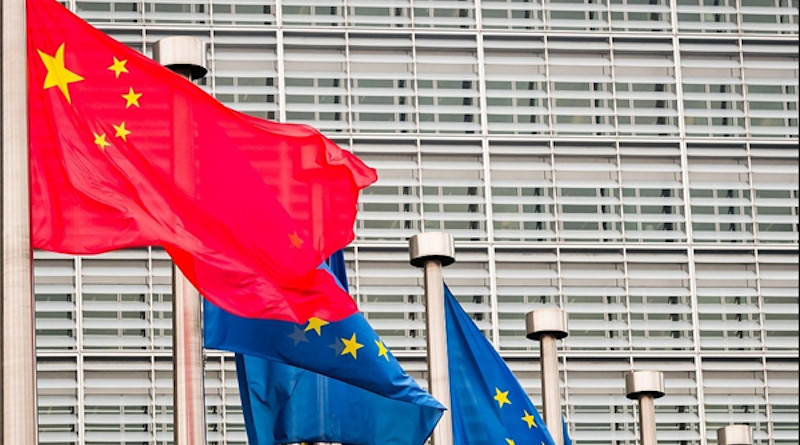What Is The EU’s Further Role In Asian Security Issues? – OpEd
The Asian economy continued to grow impressively in 2014. But Asia is still facing a number of security challenges such as territory disputes in East Asia, South Asia, and South East Asia. Regional players such as China, Japan, India and ASEAN play crucial roles in dealing with these challenges as do outside players including the US and EU. However in 2104, the EU was pre-occupied by security issues in its own neighbourhood and it seemed Europe put less focus on Asian security issues. Furthermore, pressing international security challenges such as ISIS needed to be addressed globally as well.
Under the current international security environment, what role can the EU play with regard to challenges to regional security and human security in Asia? Can Asia impact regional security in Europe? What are the main areas of concerns for closer political dialogue between EU and Asia? Does ASEM have enough potential or parties should set up new initiatives?
Presentations
These were some of the issues discussed at two Egmont conferences on the 9th and 10th of February. The 9th conference was based on the main findings of a multi-year project about cooperation between Asia and EU conducted by the Free University of Berlin. May-Britt Stumbaum, Director NFG Research Group, Freie Universität Berlin introduced the basic principles of security cooperation between Asian countries, the EU and its member states. Her research suggested that the EU can provide Asia with expertise, facilitate exchanges, and act as fount of know-how and capacity. Examples included UK training of police peacekeepers in China; Asian high-level officer exchanges with Germany, France and UK; provision of peacekeeping policy templates; and coordination of antipiracy missions. She also addressed the main challenge EU faces which is the coordination of EU member states’ activities towards Asian security issues.
Michito Tsuruoka, Senior Research Fellow, National Institute for Defense Studies (NIDS) in Tokyo gave an Asian point of view about how Asian view the EU as a security actor in Asia. He said Europe’s has its advantages when it comes to peace-making and reconciliation, aid and the promotion of democracy and the rule of law although the EU does not have the kind of military resources as the U.S does. Alfredo Conte, Head of the Strategic Planning Division in the EEAS then gave an overview of the positive developments the EU has made in Asian security issues in 2014, including a number of official and unofficial security meetings between EU and Asian Countries.
The conference on the 10th aimed to gather the experts in the field and discuss what the future of EU-Asia cooperation entails. Gerhard Sabathil, Director East Asia, EEAS and Maria Castillo-Fernandez, Head of Division India, Nepal, Bhutan, EEAS, respectively introduced the Europe’s engagement with East Asian partners and the role of EU in South Asia. They both said that although the EU is primarily focusing on its security issues in Europe, it had participated in many meetings and projectsdealing with the regional security issues in East Asia and South Asia. . Gerhard Sabathil especially stressed EU’s cooperation with China in the regional and international security issues. Ambassador Ong Keng Yong, Former Secretary-General of ASEAN, Rajaratnam School of International Studies, said that ASEAN is currently drafting its mission for the next 10 years. He called for the further enhancement of ASEAN-EU relations since EU is not just an external player for security issues in ASEAN, but more importantly ASEAN can benefit much more from EU’s integration experience.
Ambassador Chang-beom Kim, Mission of the Republic of Korean to the EU believed that the EU-Korea cooperation is an excellent example of a good partnership between East Asian countries and the EU. He suggested that the EU should regularly participate in the East Asia three parties’ conversation (China, Japan and Korea) to further enhance the cooperation of EU and East Asia.
Rajendra K. Jain, Director and Jean Monnet Chair, centre for European Studies, Jawaharlal Nehru University, India, considered that there was still room for the EU to take more active roles in south Asia. Although India mainly relies on the US to balance the major powers in Asia, there was a supportive role for the EU even though India is more focused on direct dialogue with some member states rather than the EU as a whole.
Thomas Christiansen, Chair in European Institutional Politics, University of Maastricht, Netherlands, said that although ASEAM is considered as a “talk shop”, it has its own advantages because of its non-institutionalized status. He believed that leaders meeting multilaterally and bilaterally under ASEAM framework is playing a very important role in both EU- Asia relations and bilateral relations.
Questions raised by audience and the followed debates were focused on: China’s role in Asia security; Modi’s coming visit in Europe but not Brussels; EU’s unchanged “insignificance” in Asian security issues; and the balance between EU’s internal security issues and Asian security issues.
Conclusion
There is still no conclusive answers in response to these questions. But it is clear that EU-Asia cooperation is crucial to the EU. This month, Obama invited Xi and Abe to visit the U.S. The leaders of South Korea and Indonesia are also scheduled to visit U.S this year. It showed that Asia is still a focus of Obama and the U.S remains the principal actor in Asia, not just in security matters. Although the EU does not have the same political role in Asia, it has the ambition to become a more important actor in Asia. More EU resources might be invested in enhancing EU-Asia cooperation and better coordination between the external policies of the Commission and the EEAS as well as the national foreign policies of the 28 member states would help.

